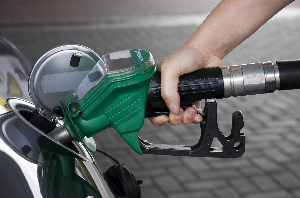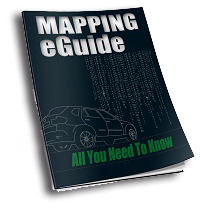Fuel Saving Tips To Combat Rising Fuel Prices
Vehicle Fuel Saving Tips
We all like to save a little money, and with the ever increasing cost of fuel, it’d be great to improve the mpg of our vehicle to make a litre (or gallon in old money) of petrol or diesel go a bit further.
And whether you’ve had an ECU remap on your vehicle to improve economy or not, there’s some things we can all do to eek out a few more miles from a tank full of that ‘liquid gold’!
The list below isn’t in any particular order, but all of the items will have some degree of effect on your vehicles fuel consumption.
Check Your Tyre Pressures And Wheel Alignment:
You should check your tyre pressure regularly anyway, but particularly if you want to increase your cars mpg.
As tyres gradually loose pressure over time, the lower your tyre pressure is, the more tyre tread touches the road surface.
This increases rolling resistance as the wheel rotates, and so more power is needed, which means more fuel is used to generate that extra power, reducing the mpg..
It only takes a few minutes every week or fortnight to check all the tyres on your vehicle, and you can usually find the pressure figures near the lock inside the driver’s door, on the inside of the fuel filler cap, or in your owners manual (or do a search online).
It is also a good idea to have the wheel alignment checked periodically, to ensure your vehicle’s wheels run parallel to each other & not like a ‘wonky’ wheel on a shopping trolley, which we all know is difficult to push!
Remove Weight:
The weight of your vehicle is another factor which affects the fuel economy.
Now we’re not suggesting you rip out the seats & carpets (although it would save weight) but just take a look at some of the things you might be carrying around with you that aren’t really needed.
Do you really need your golf clubs, wellies & a spade in your boot on EVERY trip? Does your roof box or cycle rack NEED to be on when you go to work? And what about your ski’s & snow boots in your roof box, do you really need them in July!
Ok, l think you get the picture. Just remove the stuff that you don’t really need on this trip, you can always put it back when you actually need it!
Keep Your Engine In ‘Tip-Top’ Condition:
It goes without saying that you should keep your engine well maintained to maximise the life & performance, but it will also impact the fuel economy too.
Items like blocked air filters, poorly performing spark plugs or ignition systems will have a marked effect on the mpg you get. So make sure you get it regularly serviced according to the manufacturers recommendations.
Another factor to consider for maintaining mpg is using the correct oil viscosity (thickness).
Using the wrong grade of oil which is thicker than the engine is designed to run on, means the engine has to work harder, which obviously reduces fuel efficiency & worsens mpg..
You should check which oil to use in your vehicle’s owners manual or check by doing an on-line search.
If you own a diesel vehicle, it will probably be fitted with a Diesel Particulate Filter (DPF) in the exhaust system, which needs periodic ‘regeneration’ to ensure it does not block up, which would reduce performance and fuel economy.
This regeneration should happen automatically from time-to-time, but the vehicle needs to be up to temperature, and usually above 40mph for a few minutes to complete the cycle, but it’s important to complete the cycle.
We’ve got other posts about this which you can read here.
Drive Economically:
A change in your driving style to focus on improving the fuel economy of your vehicle is probably 1 of the most significant changes you can make, and can have HUGE gains in mpg, obviously depending on how you currently drive.
Here’s some changes in driving style you could adopt to be more fuel efficient…
Drive smoothly – Driving your vehicle in an erratic and/or aggressive way will ensure you use more fuel than you need, it’s reported up to 60% more!.
You should pull away from junctions & traffic lights smoothly as well as not stopping at traffic lights or junctions abruptly.
Tail-gaiting other vehicles, and needing to brake sharply & regularly is a sure way to ruin your mpg.
If possible try to maintain a constant speed without having to keep accelerating & decelerating continuously.
Use the steering, the brakes & the accelerator gently & progressively where possible, and when slowing down, keep your vehicle in gear. This cuts off the fuel to the engine and uses the engine braking to slow you down, which uses almost no fuel.
Anticipate – When driving, thinking ahead of you and reading the road is a major factor in how much fuel you’ll use.
Try to anticipate what’s going to happen well ahead of you will allow you to see things like junctions, traffic, roundabouts, etc enabling you to ease off the throttle to slow down naturally, or even match the speed you need to keep moving & not have to stop.
If you’re able to keep the car moving instead of stopping & starting, this has a significant effect on fuel economy, but obviously depends on the traffic conditions.
Accelerate gently – When you need to increase your speed, to use the least amount of fuel, instead of burying your right foot in the carpet, you should press the accelerator gently until you accelerate at your desired speed.
Also, backing off the throttle as you approach your desired speed after accelerating will use the momentum you’ve created to get you to your target speed. You can always accelerate gently again if you need to increase your speed.
In other circumstances, you may be in a higher gear than you should to accelerate how you want & rather than pushing the accelerator down a long way to avoid changing into that lower gear (into third from fourth say), changing down will actually use less fuel.
Don’t rev the engine high – As engines rev more, they produce more power & torque, and to produce this uses fuel & reduces fuel economy, and it’s not often that you need full power/torque in your everyday driving.
So revving the engine up to the red line, whilst it might give you a warm tingly feeling inside & impress the locals, will undoubtedly use more fuel than is necessary.
Now we know that this is disappointing to us ‘petrolheads’ who love the sound of our engine, but it’s doing nothing to help improve your mpg, and it’s just wasting fuel.
Get into higher gear sooner & stay in it longer – To drive more economically, your gear selection is also going to play a major part in improving your vehicle’s mpg.
As we’ve already mentioned, driving smoothly and consistently will definitely give you better fuel economy, and being in the right gears at the right time is a key part to this.
You should not labour the engine, as that will be counter-productive, but try changing up when you think there’s sufficient power in the next gear to maintain or achieve the speed/acceleration you need.
Typically, this means changing up at around 2,000 rpm if you’ve got a diesel engine, and around 2,500 rpm if it’s a petrol, and see the difference it makes.
You should also try to keep in the highest possible gear and only change down the gearbox when your engine drops down to low revs, r the engine feels like it’s labouring.
Stick to the speed limit – It is estimated that driving at 80mph instead of 70mph (which could loose you your licence) could mean your engine uses between 15% and 25% more fuel.
Whilst if you drop your speed from 70mph on the motorway, down to around 55mph, that could increase your cars mpg by around 10%
Turn Off The Air Conditioning:
Having the air con turned on in your vehicle all year round will use more fuel for sure.
This is because the way it works means it takes a lot of energy from the battery, which means that the engine has to work harder to drive the alternator which powers the charging system.
When the engine has to work harder it always uses more fuel, therefore reducing your mpg, so using your air con sensibly & only when needed can save you money.
Get Your Engine Remapped:
Now l know we’re biassed on this one, but remapping is probably 1 of the best things you can do to improve your mpg so long as you use the extra torque to drive it in an economical way.
If you accelerate harder, overtake more often, and drive faster then you don’t need to be a rocket scientist to work out that your mpg won’t be better!
But if you use the techniques highlighted in the ‘Drive Economically’ section, you’ll definitely see gains in your fuel economy.
If you don’t think it works, you’ve only got to chat to a VW owner who had a software update after the emissions scandal to see what effect a change in map had on their vehicle performance & fuel economy, it made their VWs a whole lot worse!
The biggest improvements in fuel economy after a remap are generally seen from turbo diesel vehicles, but we’ve also had great feedback from petrol turbo vehicle owners – once the novelty has worn off a bit 😉
Reduce The Drag:
Wind resistance will cause drag, and will need you to use more power to get up to & maintain speed, which in turn uses fuel. The more drag, the more fuel used.
So consider if you need to have your top box, roof bars, cycle carriers and/or roof rack fitted for the journey you’re making. All of these will add drag & reduce your fuel efficiency, worsening the mpg of your vehicle.
In fact, according to the Energy Saving Trust an empty roof rack will add 16% drag at 75mph, and a roof box adds an even higher 39%, resulting in a significant drop in mpg!
Another simple thing you can do to not increase drag, is to not open your windows unnecessarily.
This is less relevant at lower speeds, but driving with your window(s) down at higher/motorway speeds will significantly reduce the aerodynamic efficiency of your vehicle, as well as reducing the fuel efficiency too.
Review Your Trip:
Before you jump in your motor & head off down the road, just stop for a second & have a think…
If it’s only a short trip, could you walk or cycle? This would save a whole lot of fuel, not to mention the health benefits.
Ask yourself ‘Is it really necessary to do it now?’, or could you wait and combine it with another trip to make it more efficient & use less fuel overall
Could you car share with someone else you know & split the fuel cost. That’d cut your fuel bill in half – unless you car share with ‘The Stig’ in a Bugatti Veyron, that might be costly! 😉
Conclusion:
On their own, each of the suggestions above will help to increase the mpg of your vehicle, but when you combine them all, this will have a huge impact on the fuel economy & money you have to spend at the pumps.
We hope you found this article useful, and would welcome any other suggestions or comments you might have, which we can add to this post to share with other readers of this article.
.gif)




